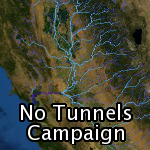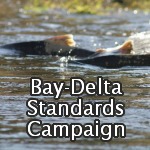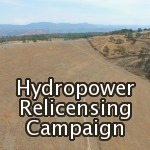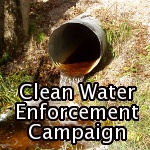The Hydropower Reform Coalition submitted comments on March 10, 2020 in opposition to proposed changes to the implementation of the National Environmental Policy Act (NEPA). The Coalition’s comments state that the proposed new NEPA rule would make analysis worse and would harm the environment.
Analysis under NEPA is required whenever there is an action by a federal agency that may have impacts on the environment, including the issuance of permits and licenses. The Trump administration’s Council on Environmental Quality issued the proposed new rule for NEPA in January 2020.
If put into practice, the proposed new NEPA rule would limit the alternatives to a proposed action that an Environmental Impact Statement (EIS) would have to analyze. In particular, alternatives that would achieve similar outcomes and have fewer environmental impacts would no longer require analysis if they would require actions by third parties.
The proposed new NEPA rule would also eliminate the requirement for an EIS to evaluate the “cumulative” effects of actions, and possibly even their indirect environmental effects. The most frequently cited analysis that this would eliminate from NEPA is the effect of an action in promoting climate change. But there are many more ways in which the proposed rule would limit analysis and thus allow federal actions and decisions to harm the environment.
The Coalition’s comments “use licensing proceedings before the Federal Energy Regulatory Commission (FERC or the Commission) to illustrate the negative impacts certain proposed rules would have on federal administrative proceedings.” For instance: suppose FERC were to limit its NEPA analyses in licensing hydroelectric projects to the requirements of the new NEPA rule. This would put FERC’s NEPA analysis in conflict with FERC’s Federal Power Act responsibilities to evaluate each “waterway” in issuing each project license (even when parts of the waterway are outside the area of one hydropower “project”). Under NEPA, this would be a “cumulative” effect, no longer required under the new rule. The Coalition’s comments use real world examples to describe how following the new NEPA rule would let utilities and FERC off the hook for evaluating the effects of power projects and licensing decisions.
The Coalition’s comments also point out that the new NEPA rule would present similar conflicts with other cornerstone environmental laws like the Endangered Species Act.
Water Power Law Group drafted the Coalition’s comments, with assistance from CSPA and American Whitewater.
Read the Hydropower Reform Coalition’s comments on the proposed NEPA rule here.
CSPA also signed on to comments drafted by the Center for Biological Diversity in opposition to the proposed NEPA rule; those comments are posted here.









